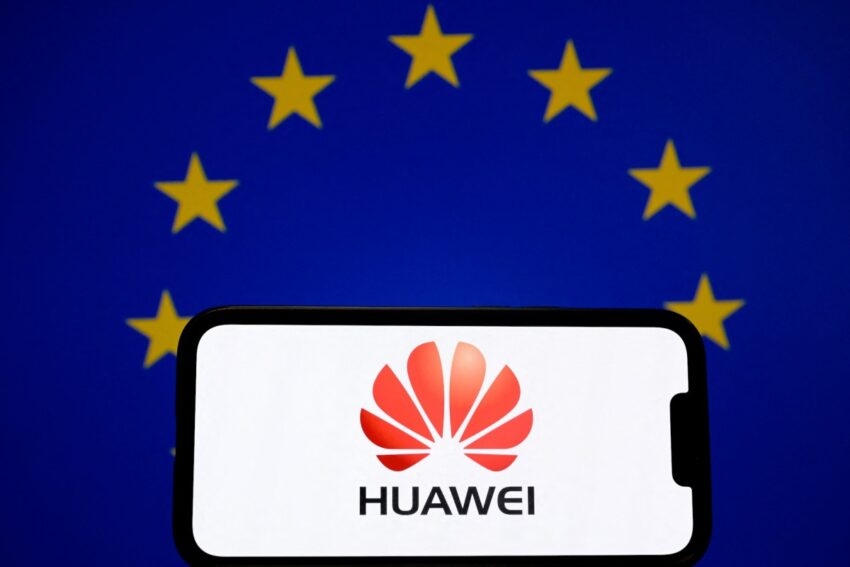
eu considers law to phase out huawei The European Commission is moving forward with plans to phase out equipment from Chinese tech giants Huawei and ZTE in the bloc’s telecommunications networks.
eu considers law to phase out huawei
Background on the EU’s Stance
In 2020, the European Commission (EC) issued a recommendation urging member states to limit their reliance on technology from “high-risk” vendors, specifically naming Huawei and ZTE. This recommendation was part of a broader strategy to enhance cybersecurity and protect critical infrastructure within the European Union. The concerns surrounding these companies stem from allegations of potential espionage and data security risks, which have been amplified by geopolitical tensions between the EU and China.
Huawei and ZTE have been at the center of controversy for several years, facing scrutiny not only in Europe but also in the United States and other regions. The U.S. government has long accused these companies of being tools for the Chinese government, suggesting that their equipment could be used for surveillance. As a result, many countries have moved to restrict or ban their use in critical telecommunications infrastructure.
Current Developments
Recently, Henna Virkkunen, the European Commission’s Vice President, has taken a more aggressive stance by advocating for the transformation of the 2020 recommendation into binding regulations. This shift indicates a significant escalation in the EU’s approach to managing security risks associated with telecommunications infrastructure.
According to reports from Bloomberg, the proposed regulation would require member states to take concrete steps to eliminate Huawei and ZTE equipment from their networks. The implications of this move could be far-reaching, affecting not only the companies involved but also the broader telecommunications landscape in Europe.
Potential Impacts on Telecommunications Infrastructure
The proposed regulation could lead to a comprehensive overhaul of existing telecommunications infrastructure across EU member states. This would involve significant financial investments, as telecom operators would need to replace existing equipment with alternatives that meet the new regulatory standards. The costs associated with such a transition could be substantial, potentially running into billions of euros.
Moreover, the timeline for phasing out Huawei and ZTE equipment could vary significantly from one member state to another. Some countries may have already begun to limit their use of these vendors, while others may be more reliant on their technology. This disparity could create challenges in achieving a unified approach across the EU.
Challenges in Implementation
Implementing a ban on Huawei and ZTE equipment will not be without its challenges. Telecom operators that have heavily invested in these technologies may resist the new regulations, citing concerns over costs and operational disruptions. Additionally, the availability of alternative suppliers capable of meeting the EU’s requirements may be limited, which could further complicate the transition.
Another challenge lies in the potential backlash from China. The Chinese government has previously expressed strong opposition to restrictions on its technology companies, arguing that such actions are politically motivated and detrimental to free trade. A regulatory move by the EU could exacerbate tensions between the bloc and China, leading to retaliatory measures that could impact European businesses operating in China.
Stakeholder Reactions
The reactions to the proposed regulations have been mixed among various stakeholders. On one hand, cybersecurity experts and advocates for national security have largely supported the move, arguing that it is necessary to protect critical infrastructure from potential threats. They emphasize the importance of ensuring that telecommunications networks are secure and resilient against foreign interference.
On the other hand, telecom operators and industry groups have voiced concerns about the economic implications of such a ban. They argue that the transition away from Huawei and ZTE could lead to increased costs for consumers and businesses alike. Additionally, there are fears that limiting the pool of available suppliers could stifle competition and innovation within the telecommunications sector.
Broader Implications for EU-China Relations
The proposed regulations also have broader implications for EU-China relations. The EU has been navigating a complex relationship with China, balancing economic interests with security concerns. While the bloc seeks to protect its technological sovereignty, it also relies on China for various goods and services, making it imperative to tread carefully.
As the EU moves forward with these regulations, it may prompt a reevaluation of its overall strategy toward China. The bloc may need to consider how to engage with Chinese companies in a manner that addresses security concerns while still fostering economic cooperation. This balancing act will be crucial in shaping the future of EU-China relations.
Future Outlook
Looking ahead, the European Commission’s push to phase out Huawei and ZTE equipment marks a pivotal moment in the EU’s approach to telecommunications security. As the regulatory process unfolds, it will be essential for member states to collaborate and share best practices to ensure a smooth transition.
Furthermore, the EU may need to invest in developing its own technological capabilities to reduce reliance on external suppliers. This could involve supporting domestic tech companies and fostering innovation within the telecommunications sector. By doing so, the EU can enhance its technological sovereignty and resilience against potential threats.
Conclusion
The proposed regulations to phase out Huawei and ZTE equipment from the EU’s telecommunications networks reflect a growing recognition of the importance of cybersecurity and national security. While the move has garnered support from some quarters, it also raises significant challenges and concerns that must be addressed. As the EU navigates this complex landscape, the implications for the telecommunications sector, EU-China relations, and the broader geopolitical landscape will be closely watched.
Source: Original report
Was this helpful?
Last Modified: November 11, 2025 at 8:39 pm
0 views















